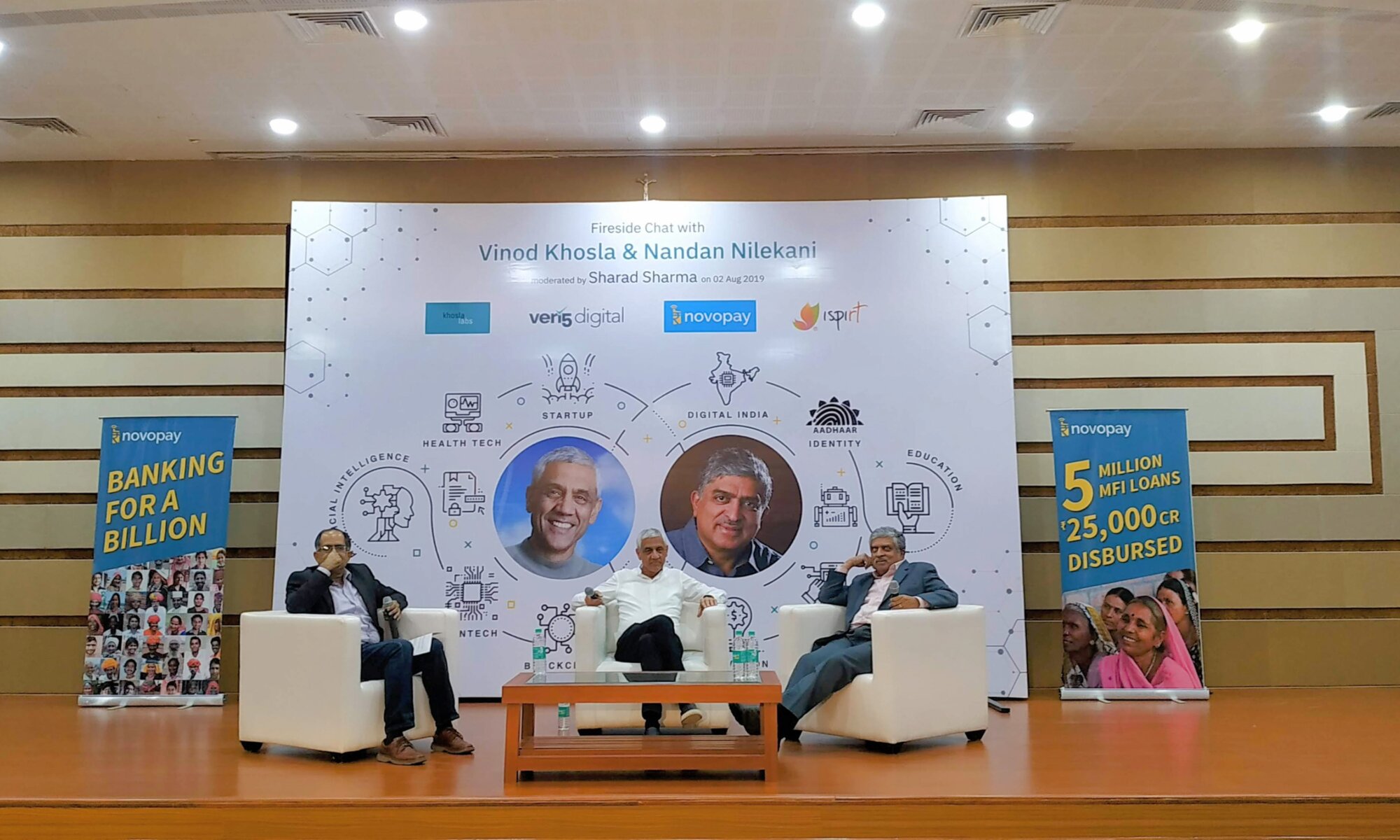Join us for a conversation with Vinod Khosla and Nandan Nilekani. Together with Sharad Sharma, our fireside chat host, they will talk about what it means to be an entrepreneur in India today and how these entrepreneurs can solve the hardest problems of India.
Vinod Khosla and Nandan Nilekani are arguably two of the most influential thinkers and innovators of our time when it comes to transformation, entrepreneurship, and large scale impact. Born within 6 months of each other, both graduated for IITs, created iconic companies, become billionaires in the in aprocess and continue to innovate and transform the world.
What better opportunity than to hear these icons of industry at a fireside chat discussing the most intriguing aspects of startups, entrepreneurship, digital transformation and India’s growth towards a multi trillion dollar economy.
About Mr. Vinod Khosla
Vinod Khosla is the founder of Khosla Ventures, a premier Silicon Valley venture capital firm, and a member of the 2018 Midas List. His firm, Khosla Ventures, invests in a wide variety of startups ranging from Healthcare, Sustainable Energy, Food/Agriculture to Space, AI and Robotics. He co-founded Sun Microsystems in 1982 after which he spent 18 years at venture capital firm Kleiner Perkins Caufield & Byers before launching his own fund.
About Mr. Nandan Nilekani
Nandan Nilekani is the co-founder of tech giant Infosys and currently back as a non-executive chairman affecting a remarkable turnaround. In 2009, he was made a Cabinet Minister and Chairman of UIDAI – India’s mammoth National ID project – Aadhaar. After Aadhaar, Nandan has actively supported India’s digital transformation through the IndiaStack initiatives in payments, digital locker, eSignature and other services. Nandan has also backed startups in the India ecosystem.
About Mr. Sharad Sharma
Sharad Sharma is the co-founder of iSPIRT and has worn many hats as CEO of Yahoo India R&D, Chair of NASSCOM Product Forum and as intrapreneur at AT&T. He is a passionate evangelist and an active investor in the software product ecosystem in India.
When?
2nd of August, 2019 from 18:00 – 19:30 hrs.
Venue to be disclosed.
How to participate?
You can be a part of this Fireside Chat by registering here. Confirmed participants will be intimated by the 28th of July via email.
Please note, due to limited seating at the venue we will not be able to accommodate everyone who applies.




